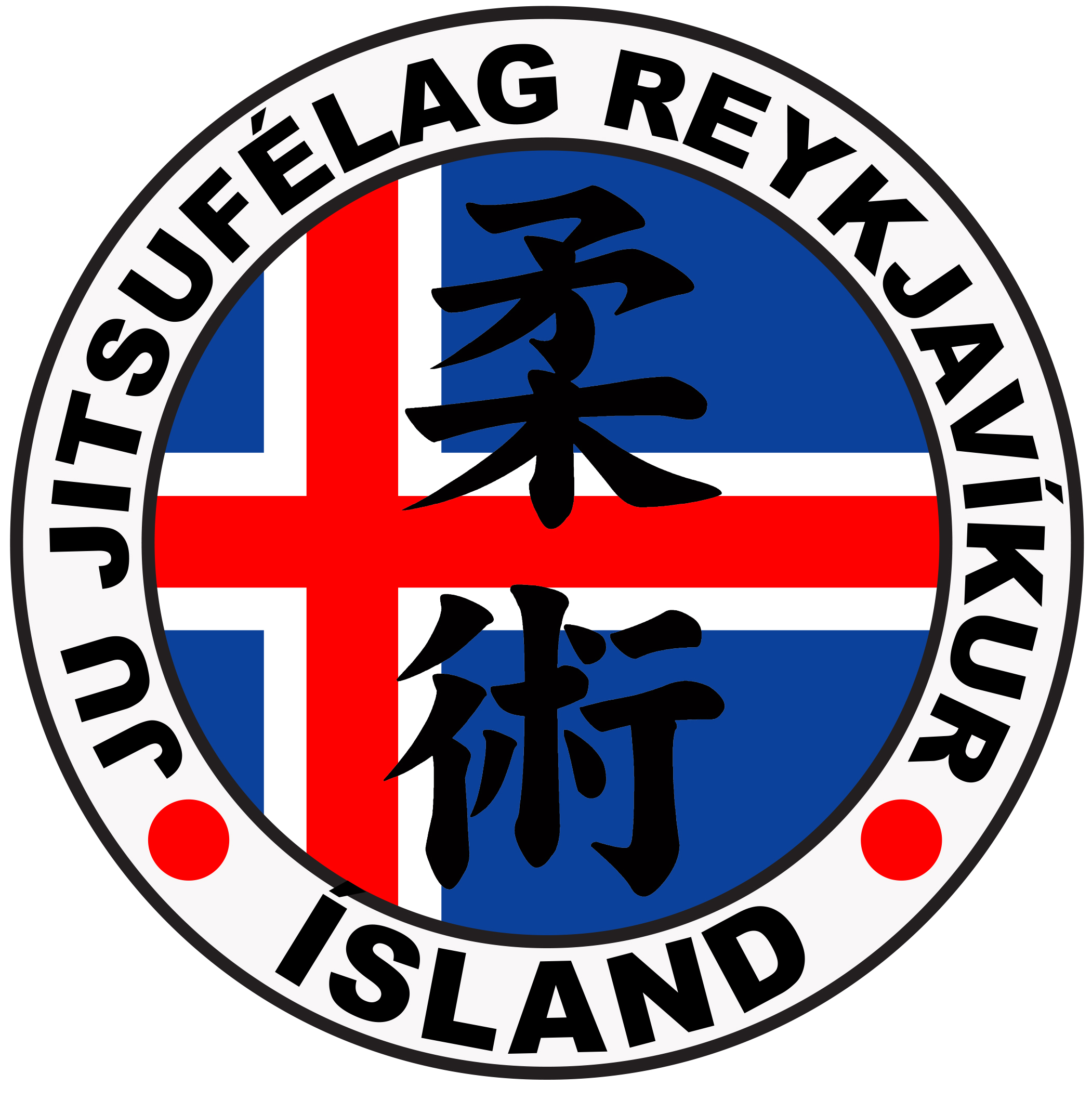Code of Ethics
This code of ethics applies to all members of the Reykjavik Ju Jitsu Club and covers all activities and events organized by the club. Please familiarize yourself with and adopt the following ethical guidelines:
- Act with complete integrity and decency towards yourself and others.
- Maintain confidentiality in your duties, within the limits of mandatory reporting laws.
- Do not abuse your position of power or any advantages you may have over others.
- Ensure equality and avoid disrespecting individuals or groups based on race, ethnicity, religion, beliefs, disability, social status, age, sexual orientation, gender identity, sex characteristics, or gender expression.
- Do not accept gifts or benefits that could undermine your credibility, independence, or impartiality.
Definition of Violence
Training in self-defense sports inherently involves physical force exercises. We respect the boundaries of our training partners and train only within the framework set by the coach and agreed upon by the practitioner. Any form of violence or use of force outside this framework is entirely unacceptable.
Behavioral Guidelines for Coaches
- Act with Respect
- Treat all practitioners equally regardless of age, gender, race, sexual orientation, disability, political beliefs, origin, religion, or social status.
- Respect individuals regardless of their ability or ambition to achieve success.
- Show respect for practitioners, parents/guardians, volunteers, coaches, and other staff, and encourage practitioners to do the same.
- Respect the boundaries and comfort zones of individual practitioners. Ensure the boundaries between training and violence are clear in practice.
- Act with Integrity
- Follow the rules of the sport, uphold integrity and respect, and encourage practitioners to do the same.
- Foster a positive and sporting environment free from substances and performance-enhancing drugs.
- Maintain confidentiality and exercise caution in handling personal information. Exceptions to confidentiality should only be made out of necessity and in accordance with legal requirements.
- Be a Good Role Model Both On and Off the Field
- Every practitioner deserves attention and equal opportunities.
- Strive to ensure that practitioners get the most out of their training.
- Demonstrate fairness, consideration, and honesty.
- Promote a healthy lifestyle by setting a good example.
- Respect the Coaching Profession
- Hold yourself to high standards regarding language, behavior, punctuality, preparation, and teaching/coaching.
- Show respect for the sport and the club, and adhere to the rules.
- Take pride in your work and seek ways to increase your knowledge.
- Organize your work considering the abilities and development of the practitioners.
- Do not hesitate to seek cooperation with other coaches or experts.
- Take your leadership role seriously and use your position constructively.
- Keep practitioners and their guardians informed about the training.
- Act in the Best Interests of the Practitioners
- Ensure the safety of the environment and that the facilities are suitable for the age and development of the practitioners.
- Prioritize the health and well-being of practitioners and avoid putting them in situations that could threaten their health.
- Show attention and care to those who have been injured or who seek your help due to mental distress.
- Avoid situations where you are alone with a practitioner.
- Violence is Not Tolerated in Sports!
- Be vigilant and take action against any form of violence: physical, sexual, or psychological.
- Do not abuse your position and power with sexual advances or otherwise.
- Avoid physical contact with practitioners unless it is a necessary part of the training.
- You are obligated to report to child protection authorities if there is suspicion that a child has been neglected, abused, or is living in conditions that threaten their health and development.
Behavioral Guidelines for Practitioners
- Act with Respect
- Treat everyone equally regardless of age, gender, race, sexual orientation, disability, political beliefs, origin, religion, or social status.
- Respect individuals regardless of their ability or ambition to achieve success.
- Show respect for the sport and adhere to its rules, customs, and practices.
- Respect your training partners, parents/guardians, volunteers, coaches, and other staff.
- Contribute to creating a positive atmosphere free from physical, mental, and sexual violence.
- Respect the boundaries and comfort zones of your training partners. Protect the boundaries between training and violence.
- Act with Integrity
- Follow the rules of the sport and act with complete integrity and decency towards yourself and others.
- Contribute to creating a positive atmosphere and environment free from substances and performance-enhancing drugs
